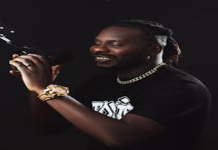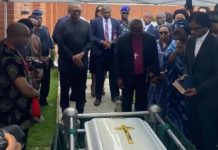Nigeria’s political landscape witnessed the curtain fall on one of its most defining figures as former President Muhammadu Buhari, a retired general and two-time national leader, passed away on Sunday, July 13, 2025, at a private clinic in London. He was 82.
The somber news was confirmed by Garba Shehu, his longtime media aide, who shared an official family statement: “INNA LILLAHI WA INNA ILAIHIRRAJIUUN. The family of the former president has announced the passing on of the former president, Muhammadu Buhari, GCFR, this afternoon in a clinic in London. May Allah accept him in Aljannatul Firdaus, Amin.”
Buhari’s death draws the curtain on a remarkable political journey that spanned over four decades—from soldier to Head of State in the 1980s, and later to Nigeria’s democratically elected president from 2015 to 2023.
From Daura to Destiny: A Journey Etched in Power
Born on December 17, 1942, in Daura, Katsina State, Muhammadu Buhari first ascended to national leadership in 1983, following a military coup. Though ousted two years later, he would re-emerge in civilian garb to win the presidency three decades on, becoming a symbol of anti-corruption and conservative reform.
Despite public scrutiny over human rights, economic turbulence, and persistent insecurity, Buhari remained a polarizing figure—admired for his discipline, yet criticized for perceived aloofness and medical secrecy.
Illness and Final Days in London
Reports indicate Buhari had travelled to the UK in April 2025 for what aides called a routine medical check-up, a familiar practice during his presidency. However, shortly after his arrival, he reportedly took ill and was admitted to a hospital, possibly spending time in intensive care before stabilizing.
Amid online speculation, former aides including Bashir Ahmad dismissed rumors of grave illness, insisting that the former president was responding to treatment and remained optimistic. His quiet death, however, has ended that cautious hope.
Buhari’s frequent medical travels to the UK had long drawn public debate over Nigeria’s ailing health system—a contradiction that defined much of his presidency’s healthcare narrative.
National Reflection and Awaited Farewell
As news of his passing spreads, tributes have begun pouring in from across political and religious divides. However, no funeral arrangements or state protocols have yet been announced by the Buhari family or the federal government.
Legacy Beyond the Grave
Muhammadu Buhari will be remembered not just for holding power twice under two different regimes—but for symbolizing an era of austere leadership, Northern military conservatism, and political resilience. His death, much like his life, leaves behind a divided but reflective nation.
In life, he embodied a generation of old-guard Nigerian statesmen; in death, he becomes a symbol of a complex chapter now closed.
📌 Quick Facts:
| Detail | Information |
|---|---|
| Full Name | Muhammadu Buhari |
| Date of Birth | December 17, 1942 |
| Date of Death | July 13, 2025 |
| Place of Death | London, United Kingdom |
| Age | 82 |
| Tenure as President | May 2015 – May 2023 |
| Military Rule | Dec 1983 – Aug 1985 |
| Key Legacy Themes | Anti-corruption, insecurity response, economic reforms, foreign healthcare controversies |
































